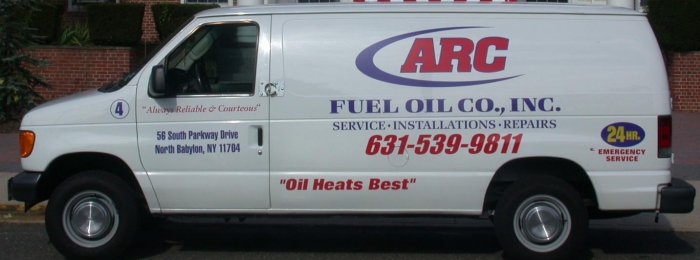Heating & General Safety Informational Tips
HEATING AND GENERAL SAFETY TIPS:
Natural & Propane Gas: If you smell gas, immediately exit your home to a safe environment then call 911 so emergency personnel can be dispatched. Natural gas and propane gases are extremely flammable and should not be taken lightly.
- Homeowners should know where their heating equipment emergency shut off switches are located.
- Homeowners should know where the water main shut off valve is located.
- Homeowners should know where their electrical service panels shut off switches are located.
Maintenance: All heating units should be cleaned, serviced and checked, at a minimum, annually. Regardless of whether you use gas or oil, preventative maintenance increases efficiency, reduces unnecessary service issues and in some cases can saves lives. We recommend homeowners to be dollar wise and not penny foolish.
Boiler Room: Keep boiler room clear of flammable goods. It is recommended that the boiler room be clear of all personal items. A properly rated fire extinguisher and two buckets of sand (NYC fire code) with round bottoms, hanging on the boiler room wall should be at your disposal.
Boiler: (Unless you have a condensing boiler) Never shut your boiler off completely. This will avoid condensation which can reduce the boilers efficiency and longevity. It is recommended a minimum temperature of 140 degrees be maintained. To maintain your boilers maximum efficiency, make sure your boiler is cleaned and serviced annually.
Oil Burner: Always keep the air inlets of your burner free of lint and dirt. Dirt and lint jeopardize the burners efficiency and changes its settings which could result in burner shut downs.
Oil Tank: Always keep oil tanks clear of all personal belongings. Access to oil shut off valve must be always accessible. Check your oil tank periodically for signs of wear and tear. You should not see or smell oil. Should you see staining or if the tank is appearing rusty or porous it is recommended to have it replaced.
Fresh Air: All heating equipment requires fresh air to operate. Make sure enough make up air (fresh air-oxygen) is available in your boiler room.
Thermostat: Keep the setting at your desired temperature. Do not try to raise higher since your home will not heat any faster; forgetting to turn it down increases your cost. Only lower the thermostat before going to bed or when leaving your home for long periods of time.
Suggestions:
- A programmable thermostat can be installed and programmed to provide heat (desired temperatures and times) to meet your daily schedules.
- A Honeywell Red Link thermostat with a gateway connected to internet access would allow you to connect remotely with a computer or smart phone allowing you to raise or lower temperatures as desired.
Building Owners: Honeywell Red Link thermostats allows you to install the thermostat in a basement or boiler room and use wired or wireless sensors. This eliminates the tenant controlling the heat and increasing your heating bills. If you have an internet connection in the building - you could introduce a Gateway and control the thermostat remotely with a computer or smart phone. You can also set minimum target points so if the temperature drops below a customer selected setpoint, an e-mail alert would be sent to you notifying you that there is a boiler or heating malfunction.
Windows: On sunny days it is suggested that you open the drapes or curtains to allow sunlight to enter your home. During the evening and cloudy days, it is recommended that you close your curtains or drapes to form a barrier against heat loss. Weatherstrip as needed. Replace old inefficient windows. If money is tight and window drafts are due to old windows, tape clear plastic around the window to form a barrier (create your own double pane window); the air trapped between the plastic is referred as to ambient air (difference between outside and inside temperature) and creates an insulator.
Doors: Use weatherstripping to reduce draft.
Free standing & convector type radiators : Keep radiators free and clear from all your furniture and belongings so heat can properly radiate throughout your home. Do not allow curtains to cover or block the distribution of heat. Keep clean of dust and pet hair.
Baseboard heating: The baseboard covers must be properly installed. Air must be able to enter from the bottom and radiate thru the fins for proper operation. Keep all furniture, beds and belongings at least six inches away from baseboard to allow good air flow. Keep free of dust and pet hairs.
Smoke and Carbon Monoxide detectors: It is law in many areas to have operating detectors. If they are battery operated, we recommend you replace batteries annually, whether they seem good or not. A good tip to remember is to choose either the fall or spring daylight savings date to replace all batteries of all detectors and test them. If the detector appears old or is out of its life span replace immediately. Safety is most important.
Remember: Carbon monoxide is a silent killer. It cannot be smelled or seen. Please ensure you have a functioning carbon monoxide detector on all levels of your home and one in each bedroom. We recommend that a carbon monoxide detector be interlocked with your heating system (basically, if carbon monoxide is present it will shut off the power to your heating unit.).
IF YOU HAVE A QUESTION OR A SUGGESTION, FEEL FREE TO SEND IT TO US. THANK YOU FOR YOUR FEEDBACK.
